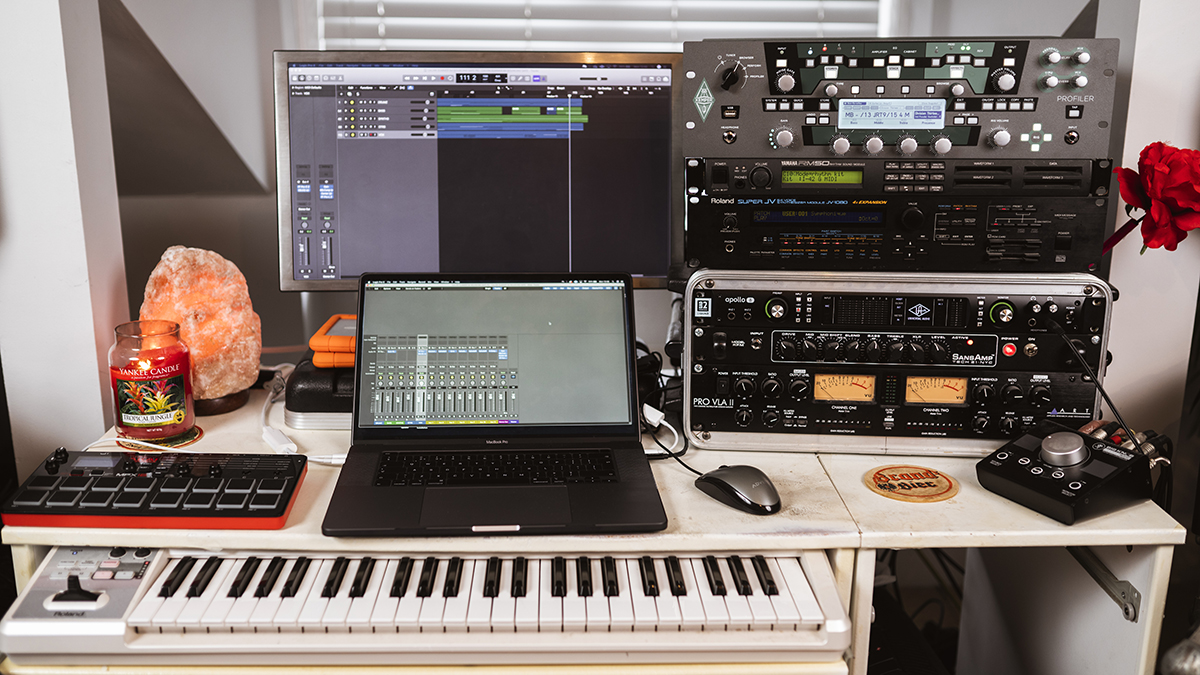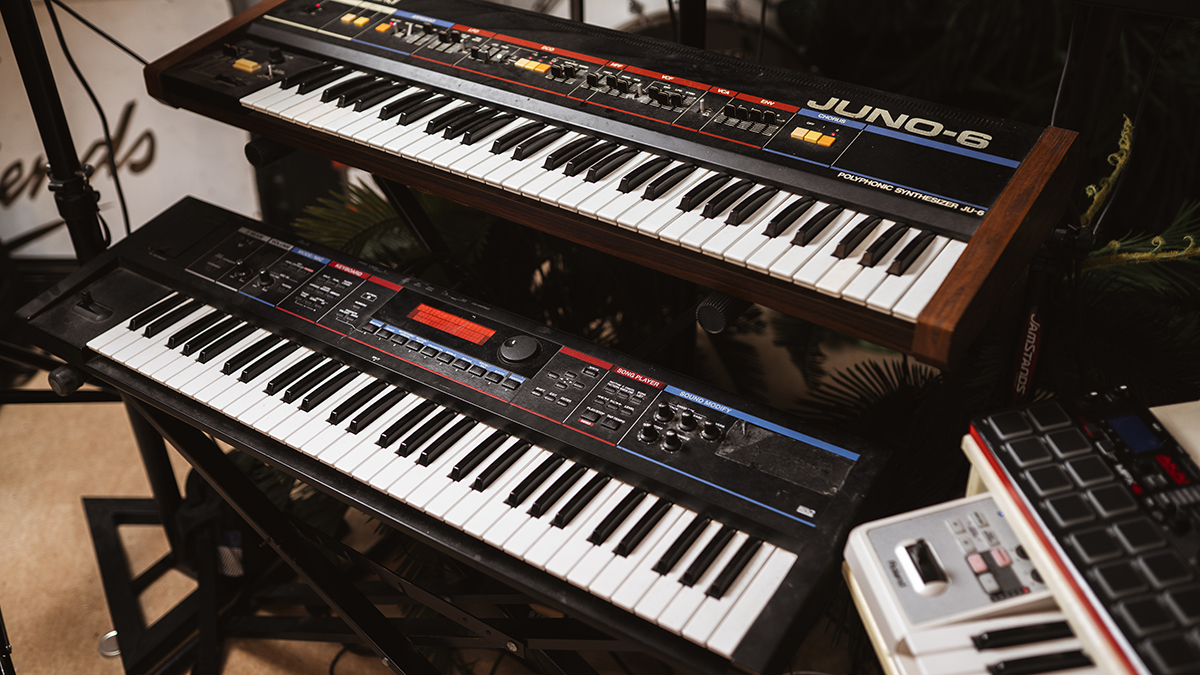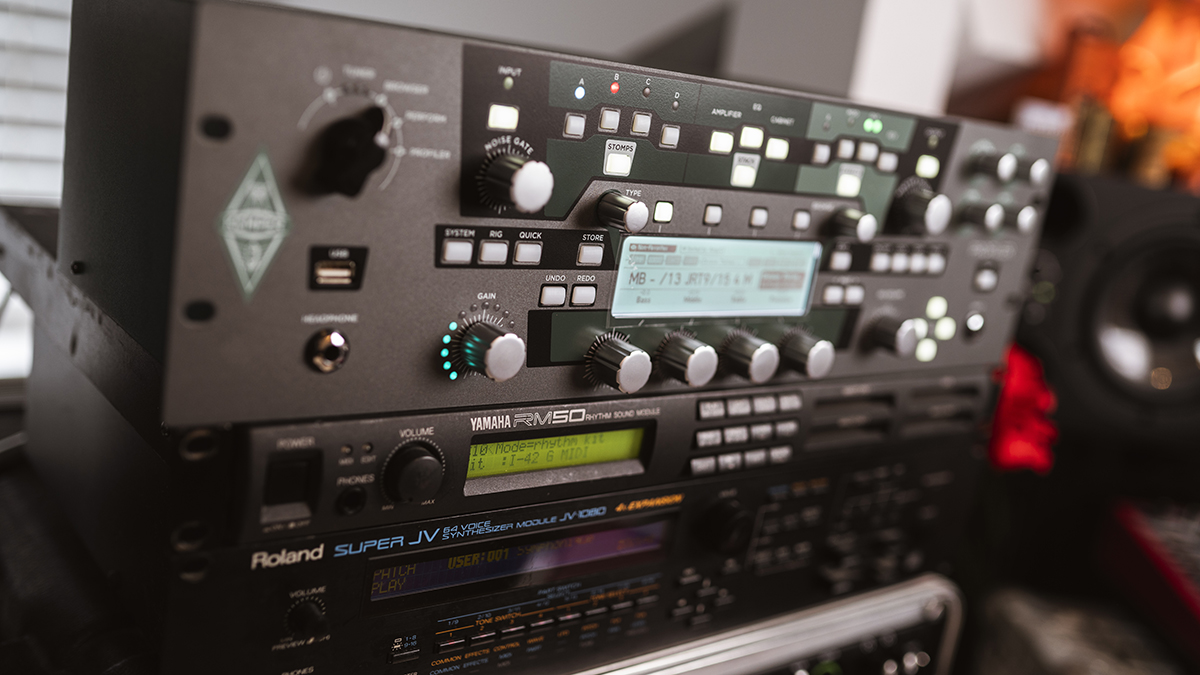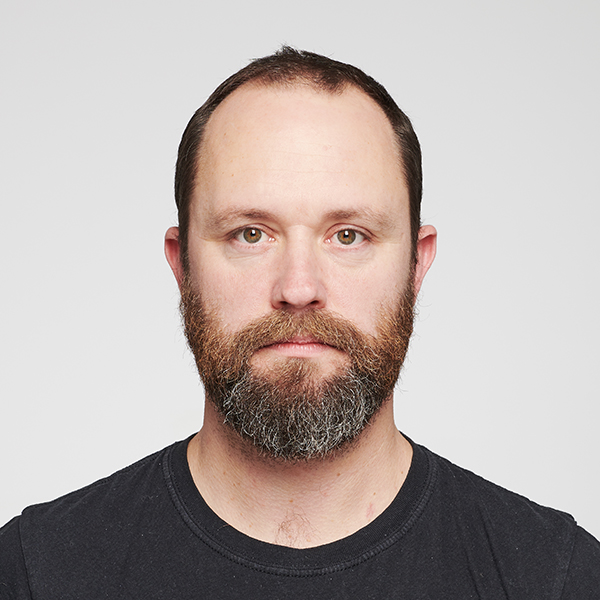The Track: Jack Wilson of Fickle Friends breaks down Pretty Great
Hook laden production laid bare
Combining an eclectic array of influences into bite-sized chunks of pure pop perfection, Brighton- based four-piece Fickle Friends are one of the most intriguing bands to emerge from the UK in recent years.
Debut album You Are Someone Else, and latest single Pretty Great are stuffed with enough catchy hooks to reinvigorate an economically-troubled fishing village. We caught up with the band’s songwriter, keyboardist and DAW-wrangler Jack Wilson in his studio to discover the secrets behind Fickle Friends’ glossy sound.
What were the musical inspirations behind the track?
“Well it’s not the coolest reference, but it’s maybe a Katy Perry meets Sheryl Crow thing? There’s, like, a subtle country vibe in the chorus, maybe a bit of Shania Twain as well. That kind of vibe.”
That’s an unexpected set of influences you’ve got there.
“Yeah well, that’s the guitar and the vocals, the rest of it is classic Fickle Friends.”
Who do you think inspires your ‘classic’ sound?
Get the MusicRadar Newsletter
Want all the hottest music and gear news, reviews, deals, features and more, direct to your inbox? Sign up here.
“Everything from Phoenix to Friendly Fires and Paramore. A bit of Michael Jackson. Those kind of things.”
You’ve used several samples from Splice in the track, is that something you’ll often use?
“Yeah, when I produced this I was maybe a bit obsessed with Splice. We were really excited about getting the song finished, and we were just pulling in samples and I was thinking ‘I’ll redo it later’. But then if they sound good, you just end up keeping them in there. So a lot of it ends up being Splice samples and if we need to go to the studio and record drums, we will. But I have some pretty good loops!”




There are some great synth tones in there too, where do you get those from?
“With synths everything’s a preset really. I’ll choose presets, but I’ll mess with it until I’m happy and use a lot of chorus and phasers and little things like that on top of it. But I go through phases, right now I’m using Omnisphere religiously, but back then I was using a lot of Output instruments and other Kontakt stuff. It depends what I’m into that month.”
There’s a lot going on in the track, how do you manage to fit everything into the mix?
“Well with Pretty Great, everything’s doing that one riff. So there might be loads of tracks, but it’s, like, four synths and four guitars doing the same thing. It might be harmonies, but at least it’s the same rhythm. I used to get carried away with rhythms and have too much polyrhythm going on, but I do try to keep it simple. A lot of the tracks are made up of what I like to call ‘moist makers’, which are just little swells and little pads. They’re not really getting in the way, they’re quite simple, just one or two notes.”
How do you make your tracks catchy?
“When we’re writing, we’ll start playing something and if me or Natty [fellow songwriter Natassja Shiner] sing a catchy melody, it’s quite effortless. With Pretty Great, the vocal in the chorus is doing what the guitar and the synths do. We had the riff and we knew that it was catchy, so instead of overcomplicating things and trying to make this catchy vocal line, we used the riff and just changed it a little.”
Hardware
Apple MacBook Pro
Universal Audio Apollo 8
Adam A7X monitors
Yamaha HS80M monitors
Kemper Profiler Rack
Nord Lead 4
Roland Juno-6
Software
Apple Logic Pro X
Spectrasonics Omnisphere
Native Instruments, Soundtoys, Valhalla DSP and Waves plugins
Will everything in the track come from a single hook usually?
“It changes every time. I think if you start doing these things the same way and all the tracks are laid out the same way, it gets pretty boring. So we don’t really have a formula. For example, when we wrote Pretty Great it was on guitar, but we never do that, usually, it’s beat first.”
The lyrics are quite sweary. Is that something that you think about when you write?
“We don’t, although we did have a period of songs with a lot of swearing in. Not because we thought it was cool, but because it started coming out naturally. Maybe because a lot of other people were doing it and we were picking up on it subconsciously. But sometimes you can’t beat a swear word, and once you’ve written it, you don’t want to change it! So with this one, we decided to keep it. But now when we’re writing, we’re aware of it and we’re trying not to have something in there for the sake of it. And we also try and see if it can be changed, for example if we had lyrics that went ‘getting fucked up’ and we changed it to ‘messed up’ and it sounded good. So that’s fine, and it’s a lot easier to not have the swearing in there!”
Pretty Great is out now on Polydor Records and issue 356 of Future Music is on sale now.



I take care of the reviews on MusicRadar and Future Music magazine, though can sometimes be spotted in front of a camera talking little sense in the presence of real musicians. For the past 30 years, I have been unable to decide on which instrument to master, so haven't bothered. Currently, a lover of all things high-gain in the guitar stakes and never one to resist churning out sub-standard funky breaks, the likes of which you'll never hear.
"Reggae is more freeform than the blues. But more important, reggae is for everyone": Bob Marley and the Wailers' Catch a Fire, track-by-track
“Part of a beautiful American tradition”: A music theory expert explains the country roots of Beyoncé’s Texas Hold ‘Em, and why it also owes a debt to the blues









